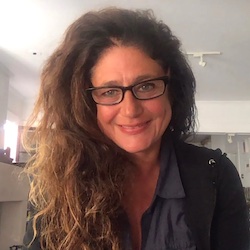Four professors will be able to develop new UCLA classes that have an impact on Los Angeles and beyond, thanks to the fourth annual Chancellor’s Awards for Community-Engaged Scholars.
Supported by the chancellor’s office and the UCLA Center for Community Engagement, each award of $10,000 will allow a faculty member to enrich the university’s curriculum through a course that features collaborative learning experiences with community partners and that addresses issues significant to his or her own work, ranging from labor organizing and environmental justice to aging and health care access.
“These collaborative research partnerships are great examples of the many ways that UCLA is deeply engaged with Los Angeles,” said Shalom Staub, director of the Center for Community Engagement. “Extending these research partnerships to include our undergraduate students will strengthen our students’ relationship with, and impact on, the larger communities in which they live and work.”
The 2023 award winners and their courses are:

Tobias Higbie
Professor of history and labor studies; director of the Institute for Research on Labor and Employment
Course: “Out of the Archives and Into the Streets: Community-Engaged Learning for History and Labor Studies”
Students in Higbie’s class will engage with questions about public memory, labor and social justice activism and the landscape of inequality in contemporary Los Angeles. The class aims to bridge the divide between hard-to-access archival collections and contemporary labor and community organizers, asking how artifacts of the past inform memory and how memory informs current organizing. Students will connect with organizers to ask what kinds of historical questions matter to them, engage with the evidence they find and create novel works based on the archives.
“I hope students will come away with an appreciation for the way public memory is shaped through everyday storytelling, documentation projects and through the interventions of historically minded students and scholars. The class is part of a wider effort I have framed as ‘Memory Work,’ a collaboration between labor unions, community organizations, activists, librarians and researchers to reclaim the past, understand the present and change the future of work and working people.”

Lené Levy-Storms
Associate professor of social welfare and geriatrics
Course: “Frontiers in Human Aging: Biomedical, Psychosocial and Policy Perspectives”
This core course for the UCLA gerontology minor explores human aging from molecular levels through social policies — covering biology, physiology, sociology, anthropology, psychology, public health and policy. Levy-Storms will add a formal community engagement aspect focused on intergenerational interactions to shatter ageism.
“Students will learn things in this course that will be helpful for the rest of their and their families’ and friends’ lives. I would like to think that they will become ambassadors for reducing ageism and appreciating all that living longer has to offer individuals and society in terms of wisdom, generativity and time. My vision for the future is not just young students learning about older adults, but rather different generations relating to and communicating with one another, learning how to help each other thrive in whatever life stage they are — together.”

Regan Patterson
Assistant professor of civil and environmental engineering
Course: “Developing an Engineering Community-Engaged Scholarship Course in Environmental Justice”
This course introduces students to the concept of environmental justice by having them collaborate with community-based organizations on environmental justice projects that they will co-create with each organization. In addition to working with their community partners to complete projects, students will examine methods for assessing disparities in exposure to various environmental hazards and will discuss a variety of topics, including water quality, climate and energy justice, race, ethnicity and class.
“My hope is that students walk away understanding approaches to addressing environmental hazards and injustices that go beyond solely technical approaches in order to center justice and community. I want them to learn to value different forms of knowledge, as well as recognize the sociopolitical context and justice implications of their work.”

Federica Raia
Associate professor of education and medicine
Course: “WeCREATE: Wellness Collaborative for Research & Education Activities to Transform and Empower”
WeCREATE is a community-based participatory education, research and service program involving students from UCLA, faculty, and middle and high schoolers. Participants will work to make a difference for those who have had the least access to quality health care, to support research to improve medical communication practices and to inspire young adults to pursue careers in research and health care. The new courses that will serve as an integral part of WeCREATE will have both service and research components and will follow the program’s biannual heart health clinic offering.
“This is a dream of mine: to create a program across grades, across departments, across disciplines that engages the Mann UCLA Community School at the center. The idea is that the grounds of the school can become the center of a connection with UCLA, with the David Geffen School of Medicine at UCLA and the hospital, and, of course, the UCLA School of Education and Information Studies.”
This year’s winners will spend the 2023–24 academic year developing their courses and will begin offering them to undergraduates in 2024–25 or 2025–26.
===
Source: https://newsroom.ucla.edu/releases/2023-chancellors-award-for-community-engaged-scholars.

No comments:
Post a Comment